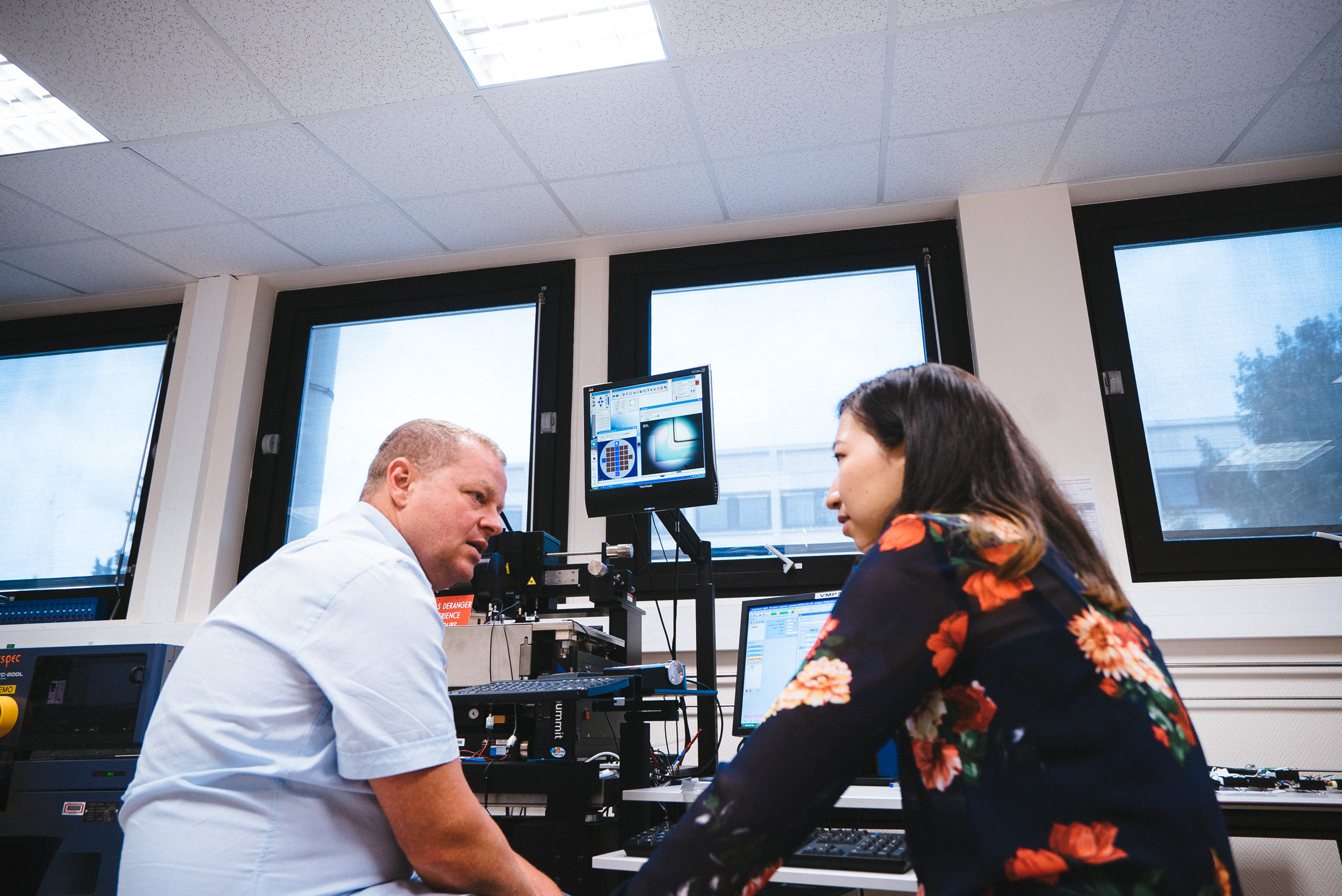My Lab
The Embedded Micro-Battery Laboratory at CEA focuses its research on the development of new micro-storage energy solutions, specifically high performance lithium microbatteries, with the help of ST Microelectronics. During this internship, my role was mainly to characterize a solid-state electrolyte, Lithium Phosphorous Oxynitride (LiPON), using electrochemical impedance spectroscopy (EIS).

With my supervisor Dr. Chirstophe Dubarry
Why was my work important?
Some of the major disadvantages to a conventional liquid electrolyte are dendrite formation that trigger explosions and leakage of hazardous materials. To overcome this problem, solid state electrolytes have been introduced; advantages include no leakage, no vaporization, and no phase transitions at low temperatures. One of the most commonly used solid-state electrolytes is LiPON.
The following are parameters to be explored to increase the efficiency of a microbattery:
- Lithium composition
- Deposition chamber
- Architecture
- Process of deposition – the electrolyte was deposited through a mask or deposited full-sheet and etched
What I did
- Determined the properties of the micro batteries’ electrolytes for the fabrication of efficient batteries
- Collaborated with team of five members and communicated in French
- Presented findings to lab of 40 people